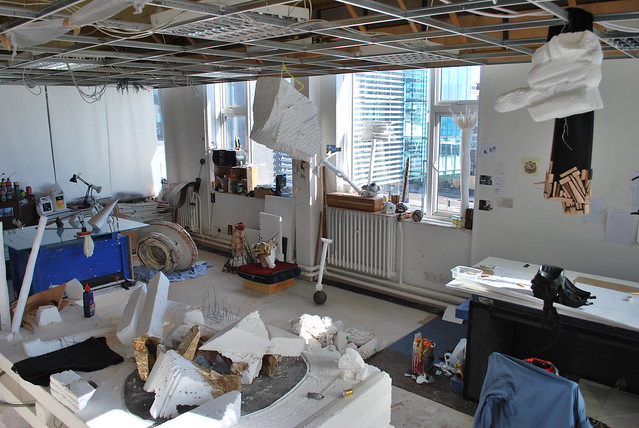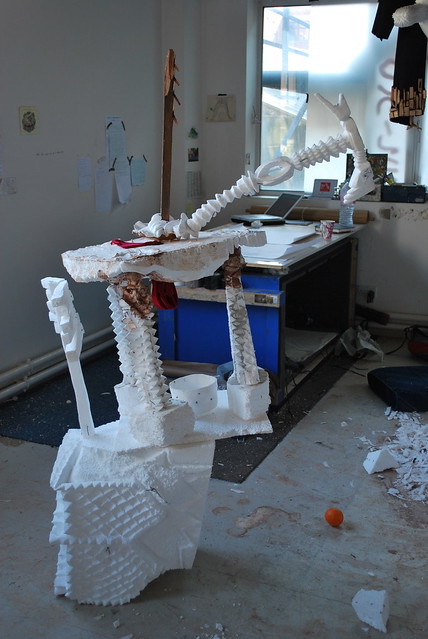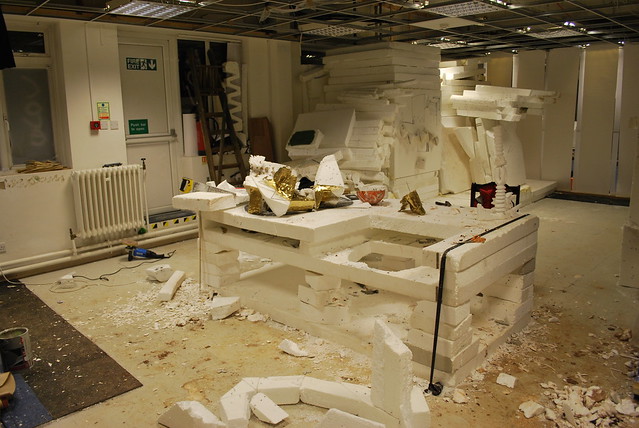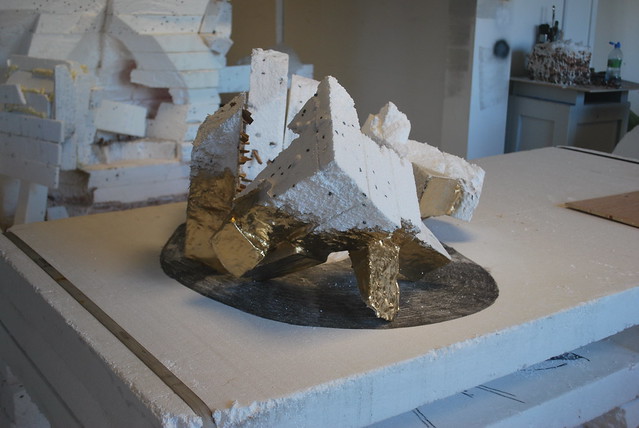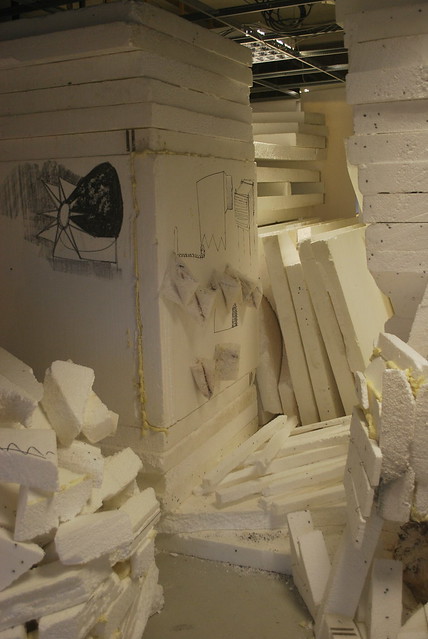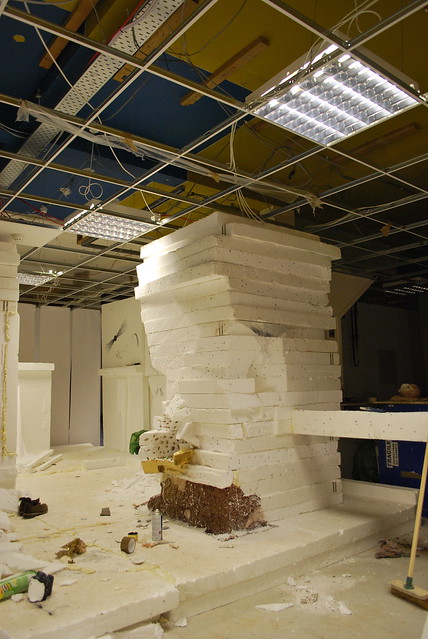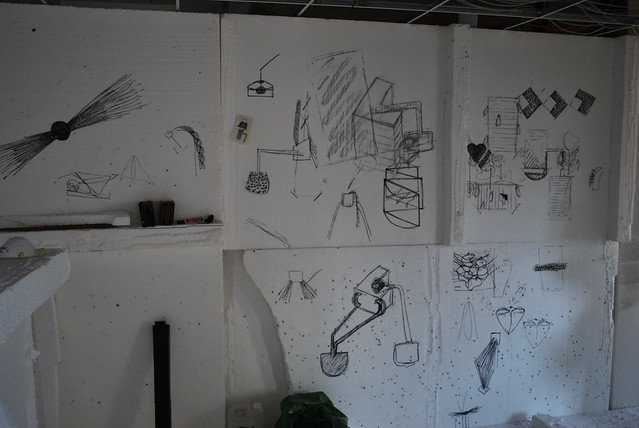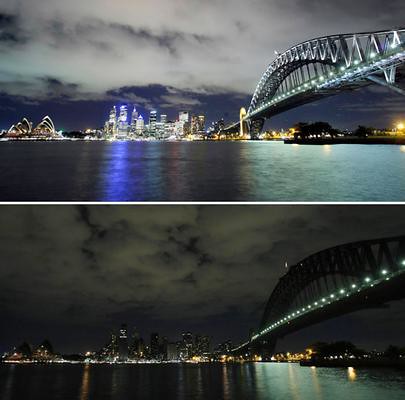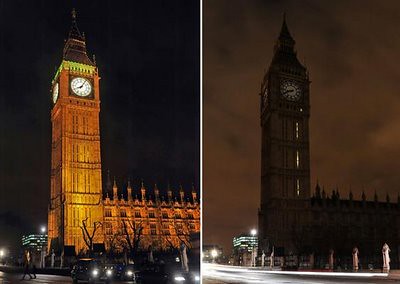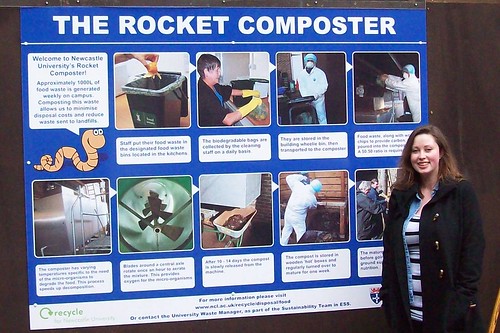
Name: Lucy Latham
Job Title: Carbon Emissions Officer
Length in job: Nine months
Why did you join the Sustainability Team?
I heard about it through a friend who told me that the Sustainability Team were advertising a position for transport project work but at that time they were only looking for master students, however she gave me a reference and so I was allowed to apply for it. The job was for three different projects so they were going to employ three different people but it ended up that they didn’t actually require a master student and that then needed someone full time to do two of the projects so I got the job. My contract then got extended and I did the third project and then it got extended again so here I am.
Can you give me a brief description of your job role?
I support the Energy Manager and help with the foot-printing of various emissions from energy and transport and keep the records of fuel usage up to date. I’ve also assisted with the Carbon Management Plan and I help a lot with putting bills on to our system so that it can be used as a reporting tool and just other bits and bobs.
What previous experience did you have before joining the team?
Immediately after I graduated, I worked for a consultancy called “Future Transport Systems”. I worked there for five months being project support for electric vehicle development projects.
Which university did you study at?
I studied Environmental Science at Newcastle University.

What are the main aims and objectives of the Sustainability Team?
Basically to promote sustainability to the staff and students throughout the university estate. Part of what we do involves a people side and a practical estate side. We try to engage with people and try to change their attitudes and behaviours so that hopefully they will take that home and have a more sustainable lifestyle. We also want to improve the university estate by building measures such as waste reduction and energy reduction.
What have you gained most from working within the team?
What I have gained most is some real life experience by working in a job role which I would like to do as my career. I have also gained an understanding in how an estate as big and varied as Newcastle University goes about dealing with the complex issues of sustainability and energy management, that is what I have enjoyed the most and hopefully I can go and develop this experience.
What sustainability campaigns within Newcastle University are you most excited about?
I’ve only really been involved in “Switch Off 2010” but there are other campaigns such as the recycling campaign which is trying to get people to recycle more. Hopefully now as we going into the launch of “Switch Off”, the revamp of “Switch Off 2010”, I’m going to start becoming a bit more involved in the organisation so I am looking forward to that. Matt and Kay are also working on bring in a new technical dimension using our sub-metering system and also in conjunction with that we are carrying out a lab audit which is my way into “Switch Off” because that is what I am working on. Hopefully we will be able to get a clearer footprint of individual lab spaces and we will be able to look at the biggest energy users and take a more strict approach in trying to understand why their equipment is being used and if there is potential to reduce it.
 Switch Off 2010 campaign at the Robinson Library
Switch Off 2010 campaign at the Robinson Library
Do you think student placements benefit the team as well as the student?
Yes, it’s has been absolutely fantastic having students working with us because everyone is producing really great work. Certainly Jenny Lowery, who I have been managing, has done a lot of really meaningful and I wouldn’t have been able to achieve a lot of things over the last few months without her assistance so it is definitely going to be very sad when you all go. It’s been great so we want to develop this work and take it forward.
 Student Intern Jenny Lowery
Student Intern Jenny Lowery
What would you like to see the team or yourself achieve in the future?
I think the biggest achievement for me would be to retain my position here! I think a great achievement would be to see the team becoming a more integral part in the way the university operates and having more sway on what happens because at the end of the day we are the ones who understand how much the energy and the waste is costing the university. Also, in terms of the carbon that is related now to legalisation and also to our carbon reduction commitment. I would like to see us being really involved in procurement and in finance and having more sway on the decisions which are made the equipment which is bought.
Lisa, Student Engagement Intern
